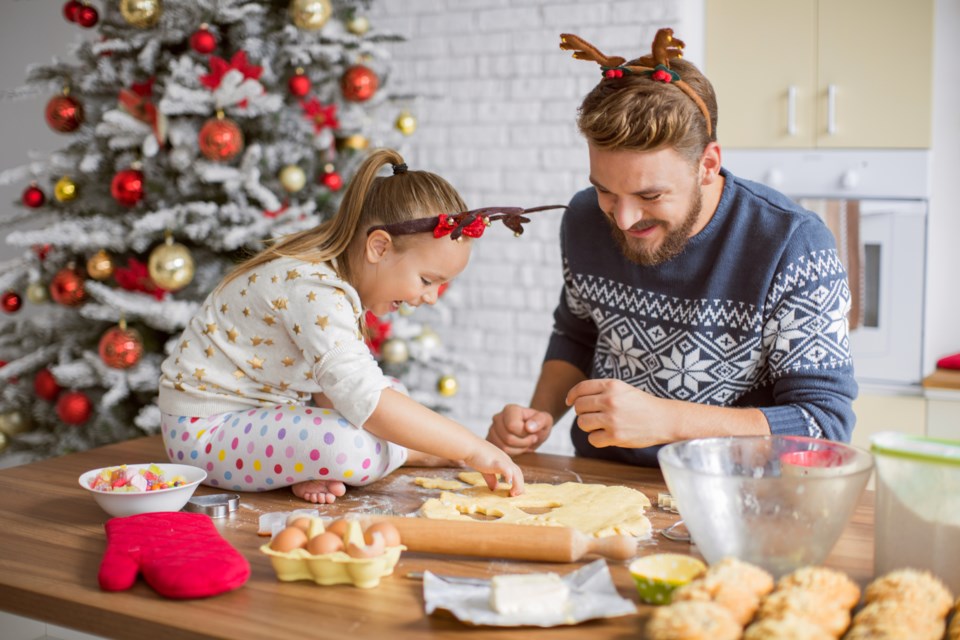Anxiety. Sadness. Anger. Frustration. Exhaustion.
These are just a few emotions parents and caregivers may be feeling when faced with their first holiday season post-divorce. Not only must they deal with juggling schedules, adjusting to the new reality, and making hard choices about where the kids will spend their time — they also need to help their kids emotionally navigate the experience.
At times, it can feel like too much to handle.
"Many parents and caregivers in separated family situations who are reaching out for support are experiencing these emotions. Addressing this in a public forum helps normalize the experience and supports parents and caregivers to learn there is nothing wrong about these feelings. They are in fact a normal reaction to a conflict experience," said Squamish clinical therapist Bernd Mueller, of the Squamish Counselling Clinic.
"Attend to your needs. Allow for self-compassion. You are a wonderful parent / caregiver and your child needs you. Thinking of the airplane example whereby, in a case of emergency, you need to put on the oxygen mask first in order to help others. Give yourself permission to function on a less optimal level for a limited time. You might be less productive, but you need time to heal and reorganize."
Furthermore, Mueller feels you shouldn't go through the experience alone.
"Share the experience with a person you trust. A separation, a divorce, these are considered life events with a potentially traumatic outcome. Isolation can intensify trauma-related symptoms, such as, to name a few, irritability, anger, trouble concentrating and feeling overwhelming guilt or shame."
When it comes to the kids, meeting their needs comes down to making them feel a sense of belonging and ensuring they understand their significance. When making decisions about the holidays, Mueller encourages holding family meetings in which everyone involved is present — and everyone gets input into the final outcome.
"In general, we can say that children benefit when co-parents resolve conflict and model adequate problem-solving. We need to remind ourselves that a child, by default, believes that all conflict they observe around them is caused by them," he said.
"It is here that we as parents and caregivers need to step up as significant attachment figures for our child. Children are not able to regulate their emotions alone. They need an attachment figure to co-regulate their emotions when they feel sad, fearful, bored, hungry or joyful. If the attachment figure does not step up in times of fear and sadness, this would be a cataclysmic event in the child's life."
Gift-giving can be particularly tricky.
"When it comes to handling gifts, guiding questions that a parent/caregiver can ask themselves are 'how do I meet my child's needs' and 'how can I provide them with a sense of belonging and significance?' Is there an option to have a gift-giving huddle or gathering where both parents and the child are present, where gifts are coming from both parents?"
Though this is the ideal, he acknowledges it's often not possible.
"If the relationship between both co-parents does not allow certain practices that you might find otherwise helpful, it can be helpful to check in with your own values, identifying what are your non-negotiables on this topic and what are the negotiables?"
Mueller feels it comes down to values such as community, mental well-being, and independence. In a conflict situation, these values become non-negotiable.
"These values can be broken down into goals and sub-goals, action steps towards your value. Translated into conflict with a co-parent around gift-handling, this means that we can ask ourselves 'what do I want from this situation?', and 'are there aspects that I can let go of?' What are my negotiables and my non-negotiables, and what would compromise my value?"
The thing to remember is that positive outcomes are possible, even if it doesn't feel that way.
"Involve your child in planning the holiday, by inviting them to add their ideas and wishes to the scaffolding schedule that you and your ex have created. This is also a wonderful opportunity to start new traditions — maybe getting out into nature, meeting with another family, or letting the child invite a friend to bring along on a hike or bike ride," he said.
"Plan ahead and provide the child with as much structure and predictability around the holidays as possible. Consider a joint activity, such as sharing a meal, even if it is only for a short time. This is one way of signalling to the child that you are still a family despite separation."
And even if not everybody in the arrangement, such as in-laws, are happy with how you've planned things, remember that it's not your job to make other people happy. Your priority should be yourself and your children.
"Notice the positive that came with this transition. Maybe you have more time to spend you-and-me-alone time with your child over the holidays now. Maybe you are now able to connect with the people around you and your child in new and often surprisingly joyful ways."
Editor's note: This story originally appeared in The Squamish Chief's annual Holiday Guide, which was released Dec. 1, 2022.
Correction: The story has been corrected since it was first posted to say, "In a conflict situation, these values become non-negotiable." In the original version, the story said, "negotiable."



